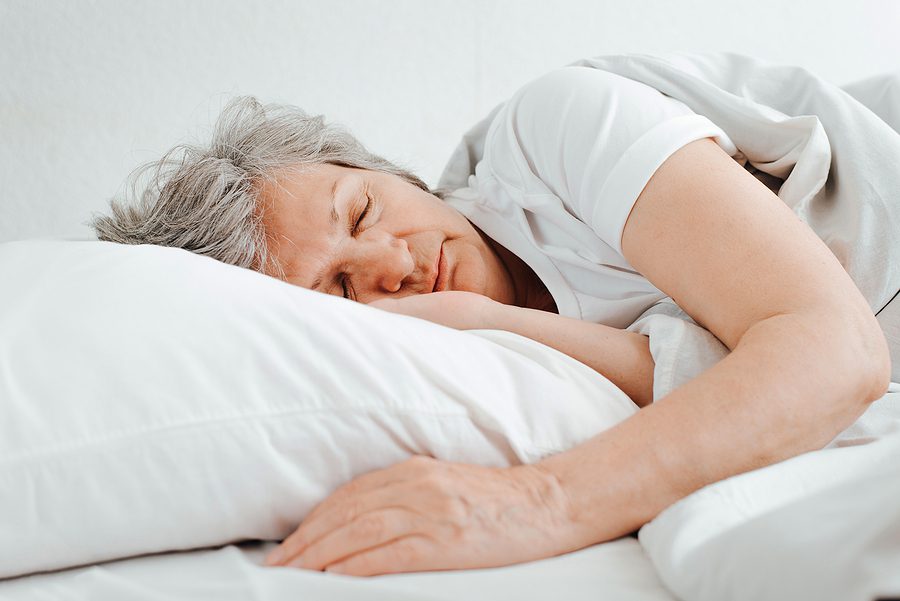Sleep can affect a lot of different aspects of your health, and that includes your heart. The amount and quality of sleep you get can affect how your body operates. This article will discuss how sleep can benefit your heart health, as well as some ways to help ensure a better night’s rest.
How Much Sleep Do You Need?
Generally, people need about 8 hours of sleep. However, the total rest you need may be a bit less with age. The National Sleep Foundation recommends 7-8 hours for those over 70. While individuals may need more or less depending on their health, patterns often change with age. Older individuals have a more challenging time falling asleep than when they were young. Health conditions, medication side effects, and chronic pain can all make it more difficult to fall and stay asleep.
Sleep Patterns and Heart Health
Proper rest is vital for our mood, mental acuity, emotional health, digestion, and more. There is a big connection between sleep patterns and overall health. Additionally, there is also a big connection between resting and your heart health. In general, those who get poor or little sleep are at a higher risk of developing heart problems. This can include heart disease, high blood pressure, and heart attacks.
How Does Sleep Impact Heart Health?
One of the most important ways that sleep impacts the heart is through its effect on stress hormones. While you sleep, the body produces less cortisol. Cortisol is a stress hormone that can also increase blood pressure.
Sleeping can also regulate the body’s “fight or flight” responses from the sympathetic nervous system. These responses make the body produce adrenaline and noradrenaline. While these hormones can be important throughout life, they can affect blood pressure and increase the risk of heart disease. Because of this, proper sleeping is vital for reducing their impact on the heart.
Poor Sleep Habits and Cholesterol Problems
Studies show that sleep can also have an impact on cholesterol levels. Studies that look at people with poor sleep habits, or those who undergo sleep deprivation, often have higher levels of bad cholesterol, when compared to those who get about 8 hours of restful sleeping.
Improve Your Sleeping Habits
It can be hard to change old habits. Especially for older individuals, who may be more accustomed to how they do things. However, improving your sleeping habits can be important to improving your overall health. Below, we will discuss some important tips to improve your sleep patterns.
First, try your best to keep a consistent schedule for sleeping. Try to go to bed around the same time every day, including weekends. Additionally, set a consistent time to get up in the morning. Make sure your bedroom is a sleep-friendly environment. It should be cool, dark, and quiet. Consider adding motion-sensor nightlights in case of late-night bathroom trips. Make sure your mattress and pillows are comfortable for you.
Avoid caffeine, heavy meals, or alcohol close to bedtime. These can affect your ability to fall asleep and stay sleeping. Relax before bed by reading. Regular exercise during the day can also improve restfulness, along with overall health. Smoking can make it harder for you to fall asleep due to nicotine withdrawal.
Talk With Your Doctor About Issues With Sleeping
Your doctor can help you adjust your medication, lifestyle choices, and other issues that may affect your sleep patterns. This may include recommending light exercises, adjusting your diet, or changing medications to help improve the overall quality of your rest. It is important to talk with your healthcare professional before making any major changes to your diet or exercise to improve your sleep.
Safe Harbor Healthcare Services does not provide medical, healthcare, or financial advice via articles. This material has been prepared for informational purposes only. It is not intended to provide, and should not be relied on for medical advice.
Safe Harbor Healthcare Services has been providing excellent home care on Staten Island since 1967. Our services help the elderly and disabled live safely and independently; while giving their families the peace of mind they need. For more information contact us by clicking here, or by calling (718)-979-6900.

